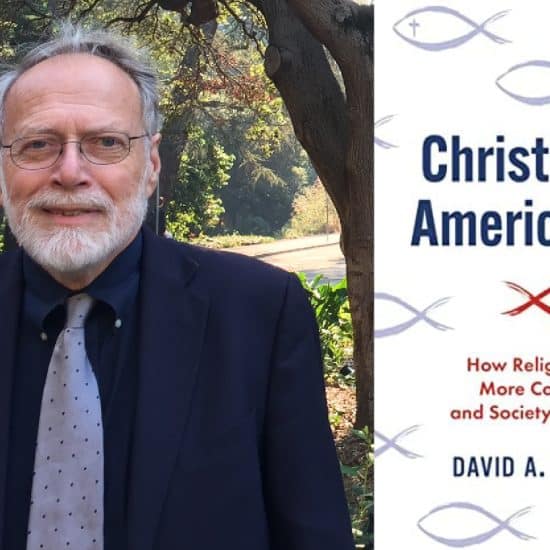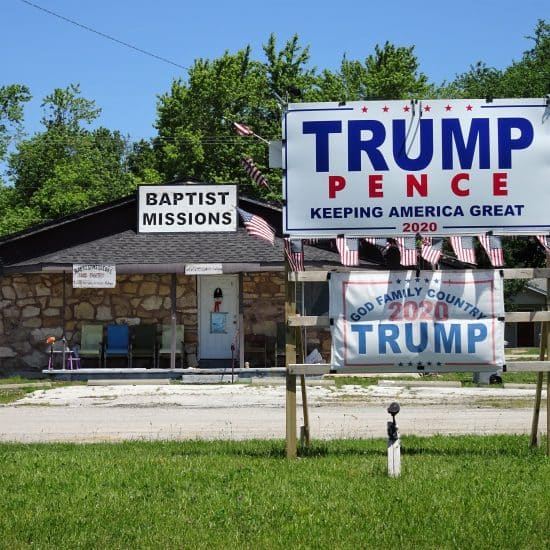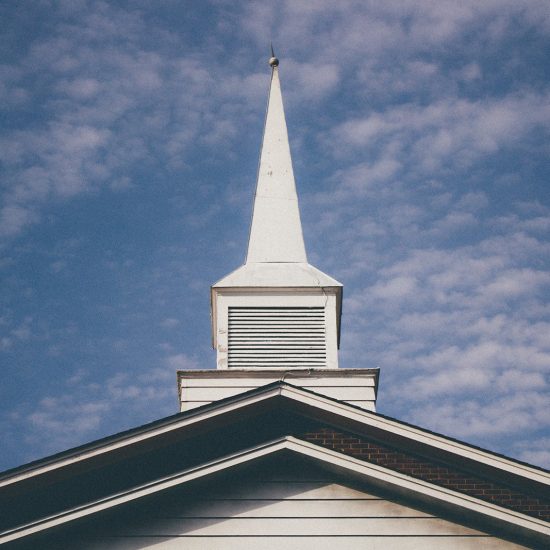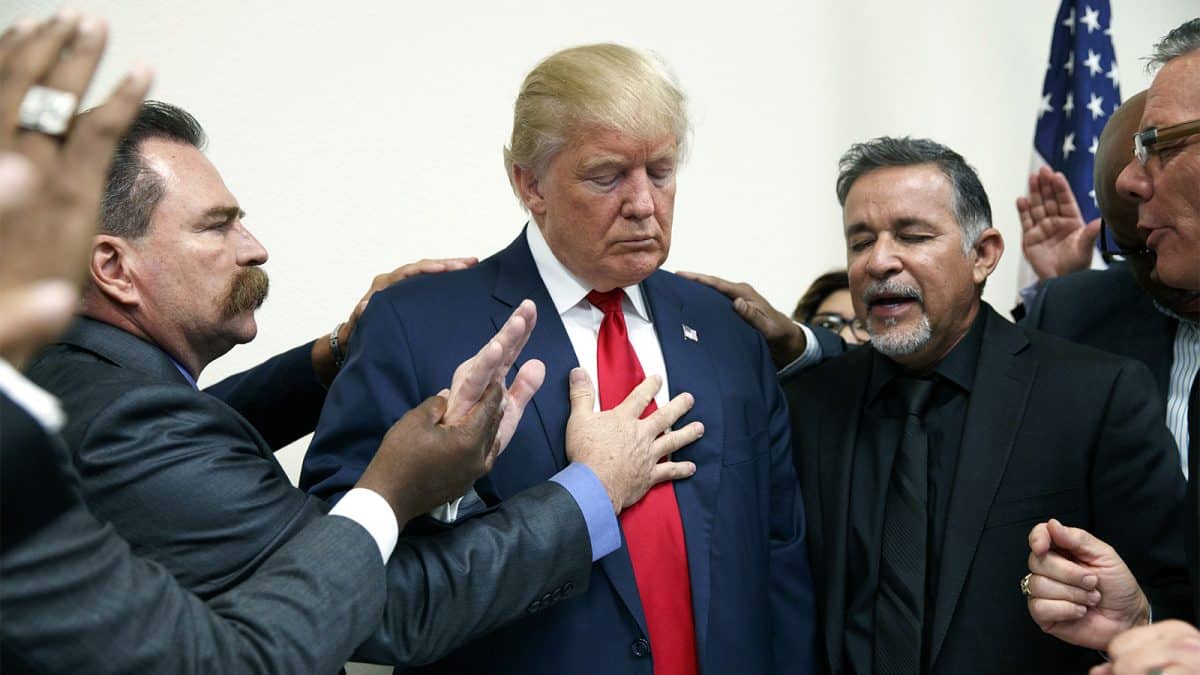
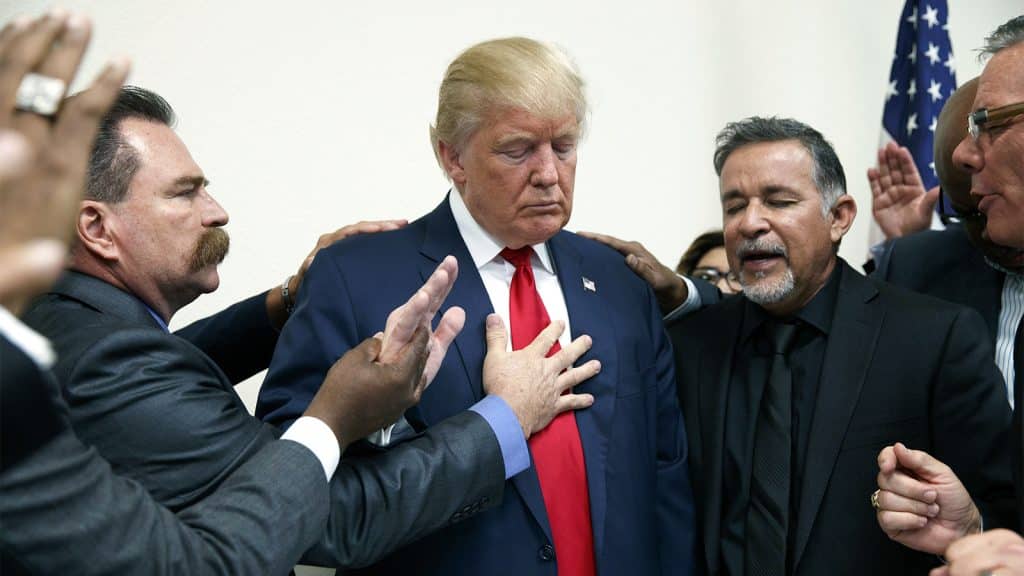
Pastors from the Las Vegas area pray with Republican presidential candidate Donald Trump during a visit to the International Church of Las Vegas, and International Christian Academy, on Oct. 5, 2016, in Las Vegas. (AP Photo/ Evan Vucci)
(RNS) — Living in Canada, I expect on my trips home to the United States to overeat and have my relatives lampoon universal health care, gun control and other examples of Canadian-ness. For my part, I am always struck in recent years by the elongated election seasons in my native country: Compared to the mercifully brief campaigns of Canada’s parliamentary system, in the U.S. it is all campaigning, all the time.
I also notice that in that mania, “evangelical” has come to mean something bizarre: white, bigoted, angry, retrograde, idolatrously devoted to God and country, cozy with dictators and rude to historic friends.
So alien is the meaning of “evangelical” that Alan Jacobs and other luminaries wonder aloud whether the word is irretrievably lost. The faith that once inspired abolitionists and suffragists and civil rights martyrs has been reduced to web trolls and evangelicals, such as Robert Jeffries, Jerry Falwell Jr. and Franklin Graham, who support President Donald Trump.
But on a visit to several evangelical churches in the heart of Red America not long ago, I found hope to think “evangelical” can mean something else instead.
In St. Joseph, Missouri, in the far west of the Show-Me state, where even Democrats tout their gun-packing bona fides, I visited the Word of Life Church. Pastor Brian Zahnd was once a charismatic TV preacher, but he’s much more Mennonite now, learning from historic peace-loving communities that peacemaking is better than televangelism. On Twitter, Zahnd seeks to disentangle evangelicalism from President Trump. “I don’t believe in conservativism; I don’t believe in progressivism. I believe in Jesus,” he wrote in one post.
The Sunday I was there, I saw him preaching with great ’60’s rock songs as his texts. The sermon that day was on Cat Stephens’ “Ride the Peace Train.” This is no hippie lullaby, he said, it’s a non-violent revolution, prophesied by Isaiah and inaugurated by Jesus.
Now whatever that is, it’s not Trumpism.
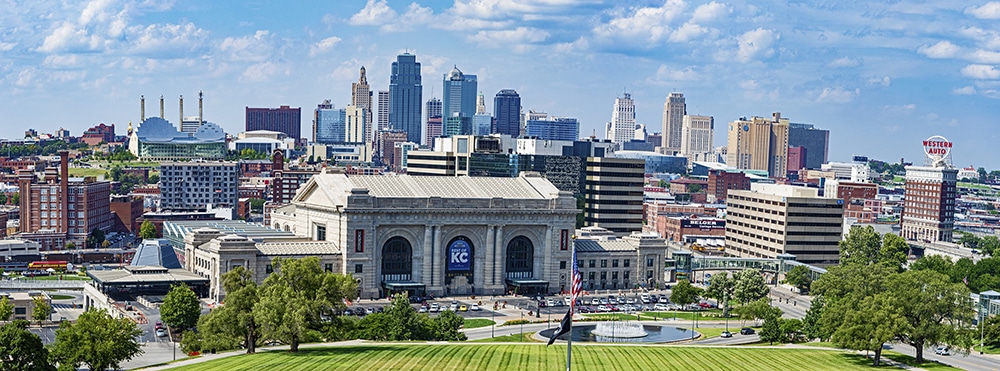
The downtown Kansas City skyline. Photo by Roy Harryman/Pixabay/Creative Commons
On that same trip, I visited the Church of the Resurrection in Leawood, Kansas, outside of Kansas City. The biggest congregation in my Methodist denomination, with some 16,000 members, has recently built an enormous new sanctuary that sports the largest stained-glass window in North America. Captured there in brilliant color are Mother Teresa, Pope John XXIII and Dietrich Bonhoeffer.
Perhaps more unexpected in conservative Kansas is that Resurrection greets visitors with a sign on every door showing the image of a crossed-out gun. My Canadian neighbors would find it odd that such a sticker would even be necessary, but in these fast-growing exurbs where Rush is required listening, this gigachurch has taken a side: no guns in the sanctuary.
On the Sunday afternoon I was there, I bumped into founding pastor Adam Hamilton as he taught a new member class to 250 some-odd folks. He could have easily delegated what some pastors take to be a menial chore, but Hamilton told me he loves doing this sort of teaching. In class that day he zeroed in on the problem of evil. His own faith was challenged when two friends died in an accident. Did God do that evil?
At Resurrection, they take courageous positions and ask difficult questions. Hamilton himself has led the denomination’s efforts to include LGBTQ+ people and published books with titles like “Seeing Gray in a World of Black and White.” He may not be indicative of all enormachurches in Red America, but only one exception disproves a blanket rule. They’re not all hotbeds of Trumpism.
Cherith Brook in downtown Kansas City is an intentional Christian community led by Protestants but inspired by Dorothy Day’s anarchist and socialist Catholicism. These folks protest nuclear warheads and visit prisoners on death row, but their day-to-day work is quieter: feeding neighbors, offering showers to the homeless, cultivating a garden and keeping bees. They are trying to live like they think we all should — to be a blessing to creation in an age of eco-catastrophe and to be close to the poor whom Jesus loves.
Oh, and they don’t vote at all. They think democracy is inherently violent and that there are no good guys. They just feed the poor, figuring that’s political enough.
To some, this kind of activity looks subversive.
Cherith Brook receives mail for many homeless neighbors, some of whom have serious legal problems. An overly zealous squad of city police banged on their door once and took issue with the community’s lack of responsiveness. My friends ended up arrested, knees in the back of their neck, roughly policed in a way typical of American inner cities. They’ve been traumatized ever since.
And they are white. Official protests against excessive force were dismissed, of course, but one cop did say to them, “We wouldn’t have done that if we’d known who you are,” that is, religious do-gooders.
My friend replied, “And that’s precisely the problem.” Communities of color are used to cops’s knees in their necks but not to apologies. Cherith Brook is trying to scramble the coordinates on black and white, to show that forgiveness is more powerful than officially sanctioned brutality. It’s not easy, but it is Christlike.
They might be wrong or crazy. But one thing they obviously are not is Trumpy. Tell that to the next person who equates “evangelical” with right-wing, knuckle-dragging Neanderthal and think instead of a certain rabbi from Palestine.
Jason Byassee is the inaugural Butler Chair in Homiletics and Biblical Hermeneutics at Vancouver School of Theology. Previously, he was senior pastor of Boone United Methodist Church in the Western North Carolina Conference.

